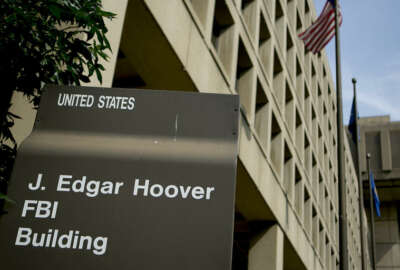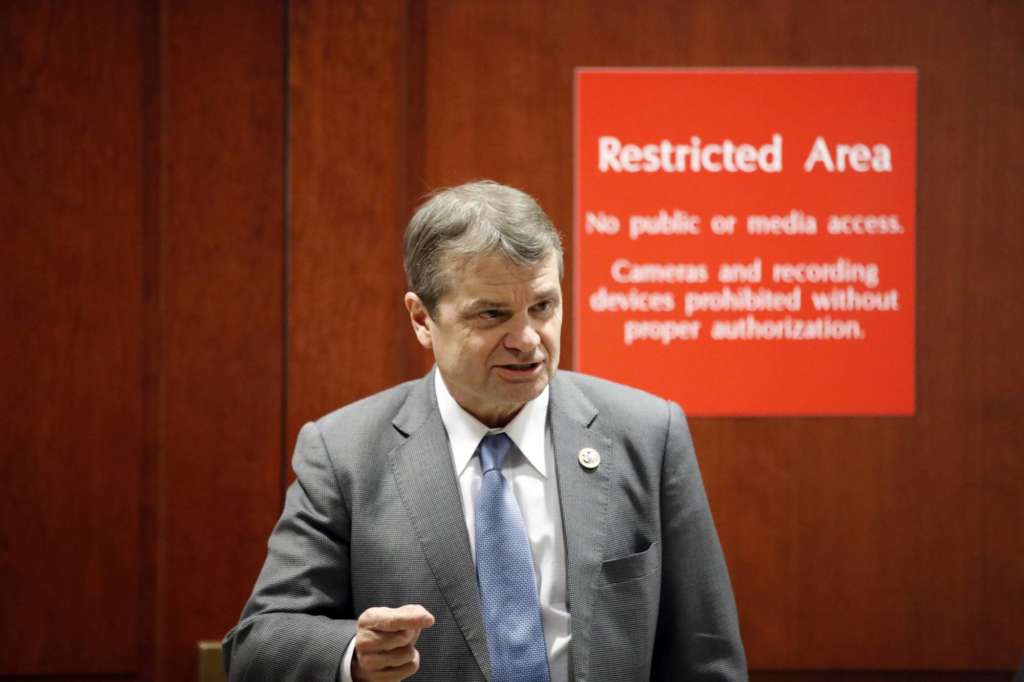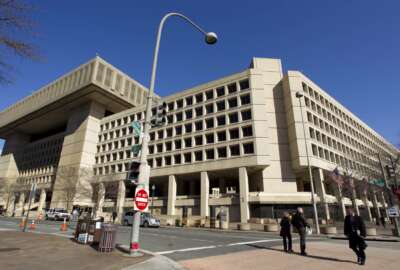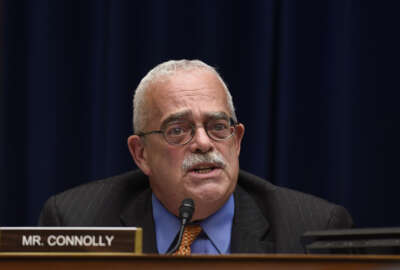

The General Services Administration sent the House a letter from the FBI which took full responsibility for deciding to keep its headquarters downtown.
The House Appropriations Committee received the first tranche of documents late Tuesday night related to the Trump administration’s decision to keep the FBI headquarters in Washington, D.C., instead of moving it to the suburbs.
Rep. Mike Quigley (D-Ill.) said the 2,500 documents the General Services Administration delivered on the eve of his subcommittee on Financial Services and General Government hearing mark the beginning of this investigation that really started in February 2018.
“It’s a partial response to the letter that the three chairmen sent about this issue [in October]. We haven’t begun to sort them out. Of the long list, it’s one letter that [the] 2,500 documents [fulfill],” Quigley said in an interview with reporters after the hearing. “I would suggest this is closer to the beginning of this investigation than the end.”
Quigley said his staff will begin to review the 2,500 documents in the coming weeks and will know more about where to go next. He said the documents may provide no new information or may be something important.

GSA delivered the first set of documents as House lawmakers from the Oversight and Reform and the Transportation and Infrastructure committees wrote to GSA, the FBI and the Justice Department on March 6 seeking documents and answers to several questions regarding the FBI headquarters decision.
At the same time, a D.C. District Court judge ruled on March 6 that GSA must do a “more comprehensive search” for FBI headquarters records to fulfill the Freedom of Information Act request filed by Citizens for Responsibility and Ethics in Washington (CREW).
GSA continued to tell lawmakers that it was not involved in the decision not to relocate the FBI headquarters. Emily Murphy, the GSA administrator, spent most of the 90-plus-minute hearing Wednesday ping-ponging between aggressive Democrats and sympathetic Republicans.
The Democrats repeatedly pressed Murphy about whether President Donald Trump had any role in the decision.
“Do you have at any time any knowledge of the president’s preference of which of the two plans he prefers?” asked Rep. Charlie Crist (D-Fla.).
Murphy declined to answer the question as well as any question that focused on pre-deliberative decisions or conversations.
“I’m just confused, I guess. I think you said for 10 years this plan to be outside the district has been pursued,” Crist asked. “So, run up has been significant? Apparently a consensus has been developed that it was smarter and wiser, and you defended that, to have a suburban location where other intelligence facilities after all are based. Then we have a change of direction where you are going to be able to house less employees and it’s going to be more expensive that a majority of people, in a bi-partisan way apparently, thought was the better way to go. What’s confusing to some of us, at least, if that thought had been embraced by so many for so long, it’s hard to explain why all of a sudden there is a dramatic change in the direction of what should be done with the FBI headquarters. That’s why some of us are scratching our heads there. That’s a frustration that you will not let us know who you consulted with, not the content, but even who you consulted with to come before here today.”
Democratic lawmakers have been asking GSA and the administration for much of the past year whether Trump played a role in the FBI headquarters decision because the hotel his company owns is across the street.
Republicans, meanwhile, came to Murphy’s defense, saying concerns about the president’s role in any decision like the FBI headquarters is exaggerated and happened before Murphy was confirmed to lead GSA.
Rep. Tom Graves (R-Ga.), ranking member of the subcommittee, said GSA’s role is one of support, not as the decision maker.
“How are decisions made? Is it common practice that you as the head of GSA tell directors or presidents or agency heads where they will have a building built or not built, is that your job?” Graves asked.



Graves asked if she or any GSA administrator have ever told an agency secretary, “no, you are wrong and we will not do that.”
Murphy said, “I have argued with other directors about whether I agree with their delineated area, whether I agree with their requirements or whether I think we can sharpen our pencils. But I have never told them ‘no, absolutely not.’”
The back and forth with Democrats also came despite the fact GSA released a letter to the committee from the FBI, which took full responsibility for changing the course of its new headquarters from being built in the Maryland or Virginia suburbs to doing a tear-down-and-rebuild at the current site.
“After careful consideration, the FBI decided that demolishing and rebuilding Pennsylvania Avenue facility best balanced the equities at stake for the organization,” writes Paul Abbate, the associate deputy director of the FBI to GSA in a letter from Feb. 8. “While a suburban campus would have offered certain advantages, maintaining the FBI’s current location addressed several equally significant concerns, including proximity to FBI partners, transportation concerns, reduced land acquisition costs and parking costs.”
But Quigley said it’s hard to believe that the FBI actually took “careful consideration,” given Director Christopher Wray made the decision within a month of the Senate confirming him.
“A more effective way to do that would’ve been to ask the Government Accountability Office and the appropriate staff of the FBI to analyze this again. We have a 2011 report that says a suburban location is the best location for safety and cost effectiveness. Let’s analyze this again, not the brand new on the job, seat-of-your-pants, knee-jerk reaction that we will go another way,” Quigley said. “It doesn’t take into account the fact that you have room for fewer employees, security concerns that have been raised, that fact that it’s more costly and the fact that they are making this so difficult to find out exactly what took place. If you combine all that together, something stinks and we have to find out.”
Quigley said Wray’s quick decision strains credibility and believes the White House’s decision to be less than transparent with the committee is both troubling and raises more issues about the decision itself.
“The fact there is such an obvious conflict of interest makes this so extraordinarily troubling. No one has ever shown me why the initial GAO/FBI report was wrong,” he said. “You are talking about an agency that continues to grow, continues to face new threats, still the only intelligence building in an urban setting, it’s higher cost, it’s less safe. There is a lot of documentation why they wanted to move to a suburban location. A lot of that was done based on intelligence information that the FBI was feeding on.”
Copyright © 2025 Federal News Network. All rights reserved. This website is not intended for users located within the European Economic Area.
Jason Miller is executive editor of Federal News Network and directs news coverage on the people, policy and programs of the federal government.
Follow @jmillerWFED
